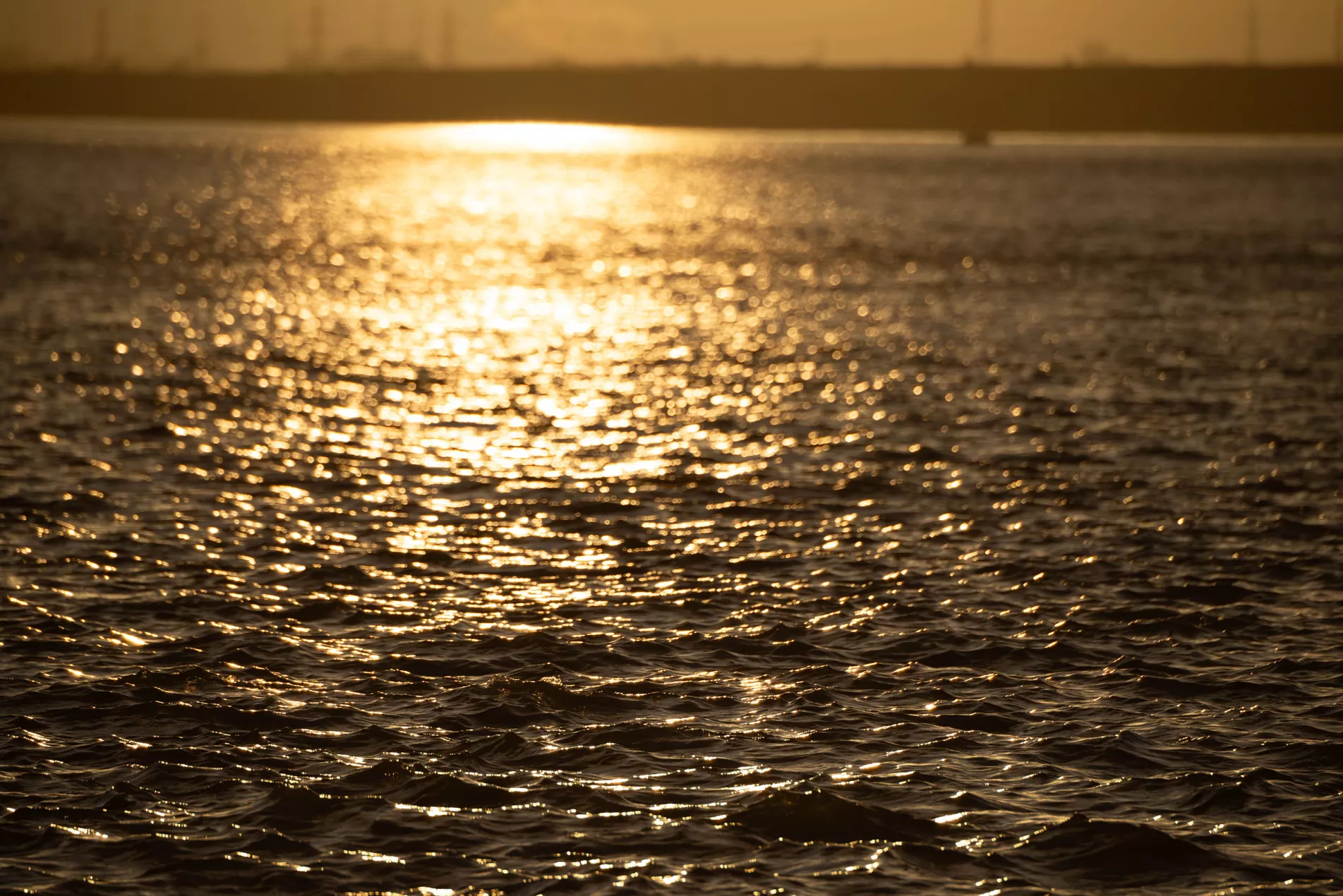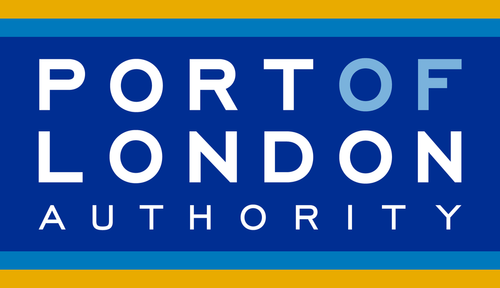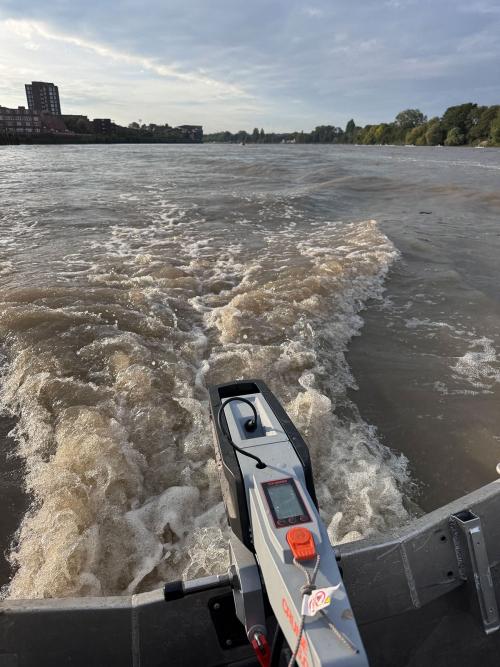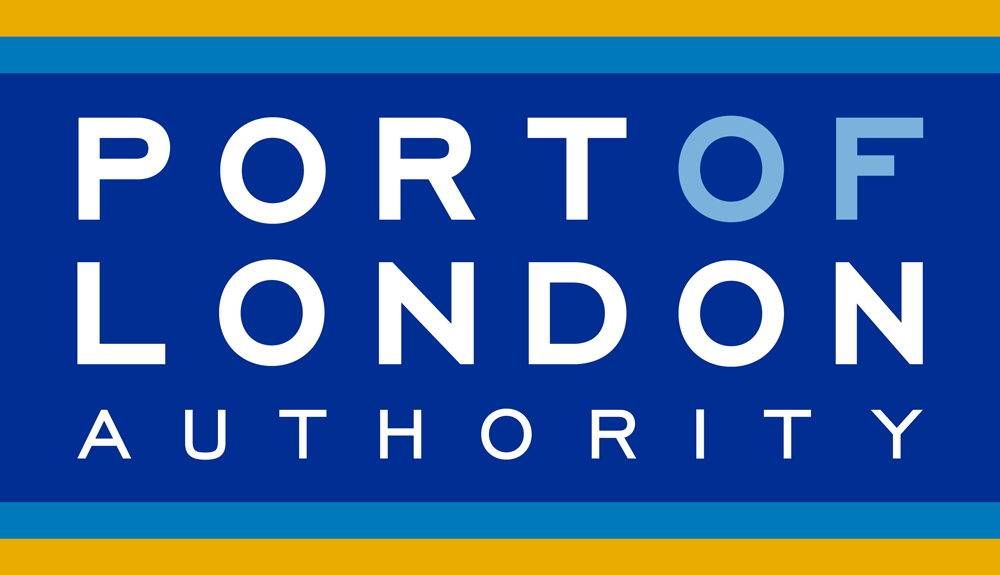Live Tides
NOTICES TO MARINERS
Charts & Surveys
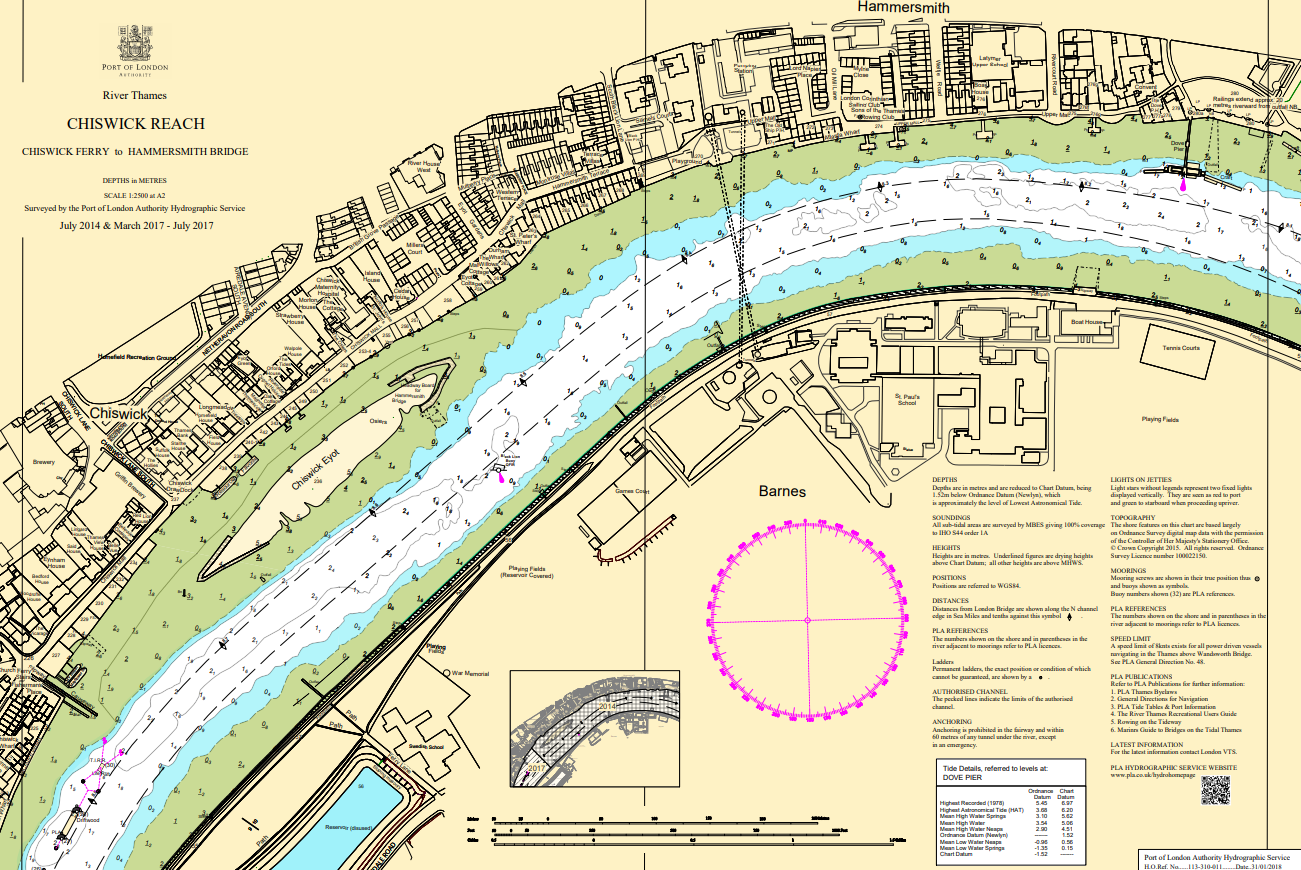
Incident reporting
Life-threatening emergencies on the river:
Call 999 and ask for the Coastguard
For near miss, safety observations and incident reporting click below
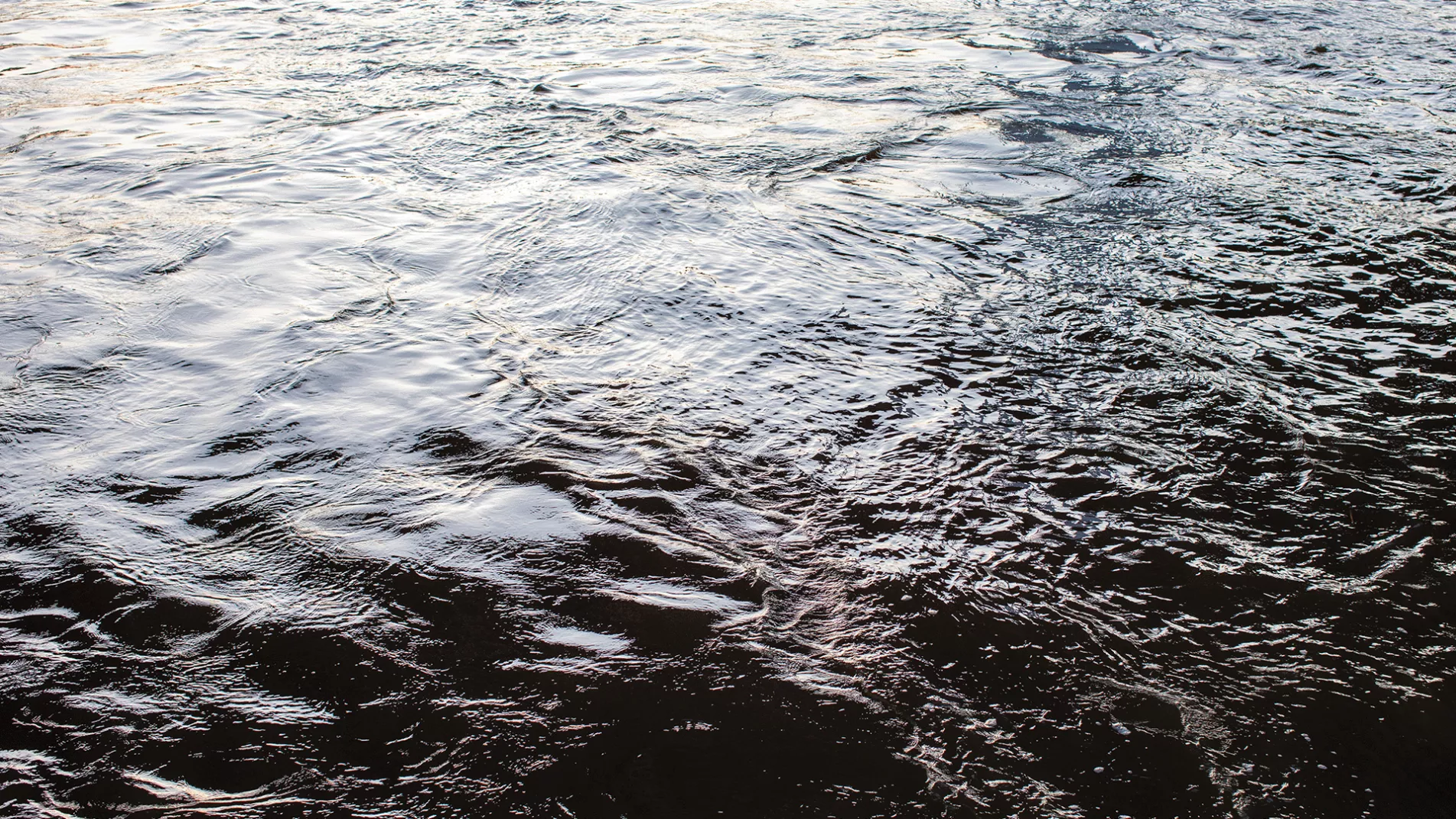
Thames Environment Fund
Providing financial support for projects that help improve the environment of the tidal river
The environment fund is part of the PLA’s work to deliver the Thames Vision 2050, which aims to secure greater use of the Thames and see the river between Teddington Lock and the North Sea become the cleanest since the Industrial Revolution.
In the past four years, the PLA has funded over 20 projects, thanks to the Thames Environment Fund. In 2022, two rowing clubs were awarded funding to replace their petrol outboards with electric alternatives. In 2021, a total of five projects were successful in receiving funding related to the themes of invasive species and litter.
Apply for this year's funding!
2024-2025 project success stories
December 2023 – October 2024
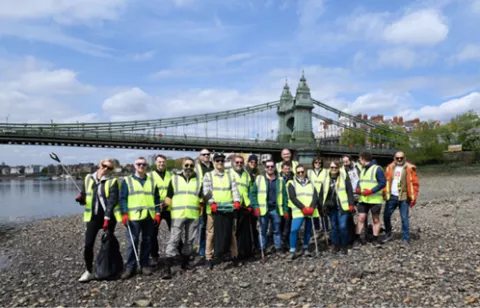
Five litter picks have taken place from the club removing a total of 400kg of rubbish. Items collected included plastic bottles, plastic packaging, disposable vapes, drinks cans, glass, tyres, canisters, metal, polystyrene, and wet wipes. A total of 69 people from the public, community groups, corporates and club members have engaged in these activities, making a real difference to the environmental sustainability of the River Thames. Feedback from participants has been very positive, and many were often surprised at the quantity and variety of rubbish that is collected and removed.
Contact Fulham Reach Boat Club | Rowing in London | Rowing Club in Fulham
January – October 2024
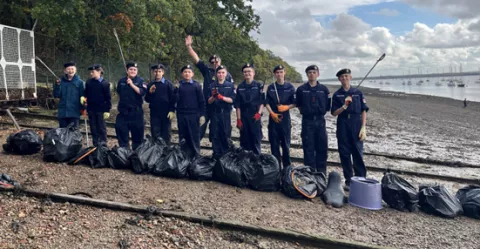
12 foreshore clean-ups took place in total across northwest Kent, attended in by 153 volunteers. 295 bags of litter were removed from the foreshore weighing 1492kg. After each clean-up, a random bag of litter was selected for its contents to be analysed. Overall, hard plastics were the most common type of litter collected, but other common types included soft plastics (including wet wipes and polystyrene), material (such as sponge, cotton and textiles) and metal.
April 2024 – April 2025
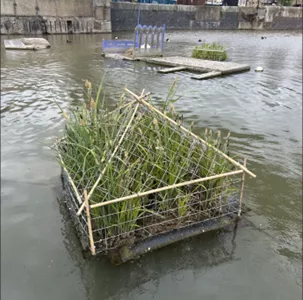
The project was completed just prior to Easter 2025 with the final planting out of five new round floating planters in the Greenland Lock area immediately adjacent to the Thames. In total ten round floating planters, six wall mounted planters and four small, one-meter square floating planters were refurbished and placed into the water. Several new plant species are being tried in the planters alongside well-established species from previous seasons. Both floating and fixed planters are being implemented as part of this project to explore further habitat development opportunities.
April 2024 – April 2025
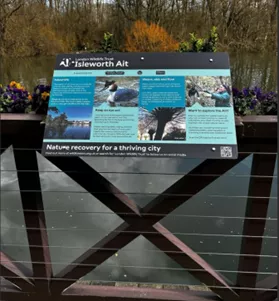
New battens for the ramp have enabled safer access to the Isleworth Ait, facilitating trips to the island as part of the Thames Festival. 40 members of the public were able to visit the site, and we received some very positive feedback:
“Thank you very much for the opportunity to take part in the guided tour of Isleworth Ait on Sunday the 15th. It was such a privilege to explore the island and learn of its unique importance, our guide's knowledge of the flora and fauna that inhabit the island was delivered comprehensively and with obvious passion all the while in an entertaining way. Every aspect of the event was so very well planned and organised with the many necessary 'health & safety' procedures adhered to smoothly and professionally”.
“I wanted to take this opportunity to thank all the team of volunteers who made our visit to Isleworth Ait on Sunday so interesting & enjoyable. The whole event was extremely well organised, from the initial emails with information on appropriate clothing, etc., prior to our visit, to the pre-visit safety briefing, our short journey by boat to the jetty, & our walk the length of the island & back. Our guides for the walk were most knowledgeable about the Ait's history, its bird, mammal & invertebrate wildlife, its plants, & the current management practices. It really was an opportunity not to be missed to visit somewhere which we have passed so many times, & seen from the towpath between Richmond & Kew, whilst out running, or, more recently, walking. Thank you & all involved very much again, for a most memorable afternoon.”
Three days of riverside contract work were completed, using a crane barge to cut and remove trees along the banks to open up light that will allow marginal vegetation to re-colonise. Monthly volunteer sessions are carried out including sessions removing the invasive plant species from the island. In November 2024 a mollusc survey was carried out in collaboration with Zoological Society of London and Citizen Zoo.
January 2024 - July 2025
Greenwich Yacht Club are very pleased with what has been achieved by this project, in terms of both delivery against objectives and the lessons learned, which are transferable to future projects at GYC and elsewhere. The club has been committed to the electrification project and has invested a considerable sum of money over and above the grant.
The electrification of the keelboat has been in full operation for most of the last two years and has exceeded expectations. The electric outboard for the trot boat took longer to get right but the club have now found an approach that is working extremely well. This has resulted in a substantial switch from the use of internal combustion to electric propulsion when members go out to boats on the club trot moorings.
The experimental use of the electric outboard for the safety boat was of marginal utility and therefore the club have concluded the technology is not quite ready for use within high traffic and strongly tidal waters similar to their location on the Thames.
The ‘lithium safe’ charging sheds and charging point installed on the pontoon demonstrate best practice that could usefully inform other sites on the river.
October 2024 - July 2025
The North Kent Marshes Internal Drainage Board (NKMIDB), in partnership with the Medway Swale Estuary Partnership (MSEP) and The eDNA Consultancy, has delivered a community-led conservation project to support the recovery of the critically endangered European eel. This study established a baseline understanding of eel presence across the Hoo Peninsula using environmental DNA (eDNA) techniques and volunteer samplers for the first time. The results are helping to identify where barriers may exist that impede eel migration. Sampling commenced in late April 2025 and continued until mid-July. Volunteers and staff, trained and equipped with eDNA water sampling kits, surveyed at 6 tidal outfalls and 16 associated watercourses.
Results confirmed eel presence at 25 of the 47 identified sites, and in part identified key structures that might be obstructing upstream migration. The resulting data will guide future eel passage efforts, connectivity improvements, and contribute to wider biodiversity objectives across the tidal Thames catchment. This project also strengthened local stewardship through meaningful citizen science engagement.
2023-2024 project success stories: reducing emissions of recreational craft
The new electric motor purchased with this grant has been a welcomed addition to Putney Town Rowing Club’s fledgling fleet of electric launches and is being widely used. The motor is more powerful and allows coaches to use it with any boat class, which provides an electric option for all squads. Simplifying charging set up has allowed the club to encourage usage across all squads and coaches. Training is rolled out to all coaches and squad members responsible for launch set up. Senior squads now have the confidence to use an electric launch knowing that their coach will be able to keep up with them even on their fastest pieces. The power of the motor allows two people to ride in the launch whereas our previous electric outboards could only carry one person unless support was being provided to novice crews.
The grant has enabled us to purchase Torqueedo Cruise 6.0 T electric engines. As regular users of the Tideway we wanted to contribute to a cleaner Thames through more environmentally friendly practices, but the costs were too high to enable us to purchase all the necessary equipment ourselves. The procedure for using electric engines being very different, we decided to restrict their use to our smaller squads to ensure that all those squad members could receive training, to monitor issues and to implement changes rapidly when problems arise. The overall response has been very positive, and the committee has been very appreciative of the grant as it has meant that we were able to able to purchase the fast charger rather than the regular charger as well as an additional battery.
Frequently asked
The Port of London Authority is the custodian of the tidal Thames from Teddington Lock to the estuary. We aim to have a river that is valued for its clean air, natural flood defence, wildlife and as a carbon sink.
Working with local communities, researchers and NGOs is critical to achieving these aims. We have launched our Thames Environment Fund to help support projects along the tidal Thames that help meet the goals of our Thames Vision 2050.
Our funding themes are:
• Improving water quality
• Enhancing ecology and biodiversity
• Reducing carbon emissions and promoting sustainability
• Improving air quality
See each theme below for more details.
- Community groups
- Charities
- NGOs
- Universities and academia
- Other not for profit organisations
Two types of funding are available:
• Large grants (up to £15,000)
• Small grants (up to £2,500)
• Project must be located on the tidal Thames or directly benefit the tidal Thames or its operators.
• The project progress should be able to be monitored with a clear start and end date and finishing before the end of the following year.
• Projects implementing or trialling emissions reduction technology should include emissions monitoring in their project scope.
• Applicants should be willing to share results of any trial/monitoring data/emissions reduction with the PLA at the PLA’s request.
• PLA logos and recognition of the funding source is required on all publicity (i.e. social media) and publications produced as part of the funding.
• The granting of PLA funding does not negate the applicant from having to gain other consents, such as PLA TRWL or other necessary consent. All consents must be in place prior to any project work being undertaken.
• All projects collecting litter as part of the project will be required to input their data and clean-up through the PLA Cleaning the Thames website.
Bids should demonstrate:
• The need for the funding and what objective the project will address
• The impact the project will have on the specific topic
• Any collaborative working required to accomplish the project
• A timeline detailing the stages and completion dates of the project
• Details of any monitoring required to verify project success
• Other sources of financial support that have been sought and/or obtained
• Appropriate risk assessment
June-August: Window to submit applications.
September: Assessment of applications.
October-December: Notification of success and provision of funding.
Projects progress throughout the following year.
Under our improving water quality theme, we are interested in supporting projects such as:
• Designing and/or trialling a new innovative method of macro/micro litter removal from the foreshore or water of the tidal Thames
• Researching pathways of litter and pollution entering the Thames and proposals for mitigation and management
• Delivering educational programmes related to litter and its impact on the environment
• Increasing public awareness to drive a long-lasting reduction in the amount of litter entering the Thames
• Designing and/or trialling new methods for monitoring and assessing water quality against a range of pollutants
• Citizen science projects aimed at monitoring water quality
Under our enhancing ecology theme, we are interested in supporting projects such as:
• Small scale habitat improvements near the tidal Thames foreshore (edges) or adjacent land
• Delivering educational programmes related to biodiversity and ecology of the Thames
• Increasing public awareness on invasive non-native species
• Invasive non-native removal projects
• Citizen science projects aimed at surveying key species including invasive non-natives
Under our sustainability theme, we are interested in supporting projects such as:
• Small scale renewable energy installations for direct use
• Reducing and designing out waste using circular economy principles
• Contributions towards shore power solutions for charging electrical outboard motors
• Programs that focus on raising awareness about environmental issues, promoting sustainability education, and fostering a sense of responsibility towards the environment
Under our improving air quality theme, we are interested in supporting projects such as:
• Trials of low emission alternative fuels
• Electric outboards for small recreational vessels
• Trials of alternative propulsion vessels
• Installation of emission monitoring technologies on vessels
• Trials of innovations or existing technologies to reduce post-combustion emissions from diesel engines on vessels
Discover
